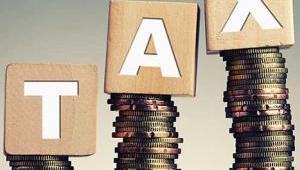11 January 2008
Chancellor Alistair Darling will have to raise taxes or significantly reduce public spending if the government presses ahead with plans to reduce immigration levels, a think-tank has claimed.
The warning from the Institute for Public Policy Research is the latest piece of bad news on the public finances for the chancellor, who is in danger of overshooting the public sector borrowing figures set out in his October Pre-Budget Report.
Danny Sriskandarajah, the IPPR's director of research strategy, told the Lords economic affairs select committee on January 8 that a 'zero-net immigration policy' would mean the costs of an ageing population would fall to a shrinking group of working-age people.
This is turn would necessitate a tax rise of 1p in the pound within the next five years, he said. Longer term, a policy of restricting the number of immigrants to the number of people leaving the UK would require a 9p rise in income tax by 2036.
The latest warning of tax hikes came after the public finance figures showed that for the first eight months of 2007/08, public sector net borrowing stood at £36.2bn. That is just £1.8bn short of the £38bn total for the year that Darling predicted in his PBR.
At the same time, concerns about inflation meant the Bank of England's monetary policy committee interest rate decision, due on January 10, was eagerly anticipated.
Maurice Fitzpatrick, an economist at Grant Thornton, warned that borrowing could be £43bn by the end of 2007/08, £5bn more than Darling's target. He said that would translate into £200 extra in tax for every household. 'Realistically, the Treasury cannot allow public borrowing to be higher than forecast,' he said. 'Tax rises will in all probability be the only way to bring borrowing into line with the forecasts in the PBR.'
Gemma Tetlow, a senior research economist at the Institute for Fiscal Studies, said Darling might still meet his PBR forecasts, but tax receipts in January — traditionally a good month for the exchequer — would be crucial.
PFjan2008



















